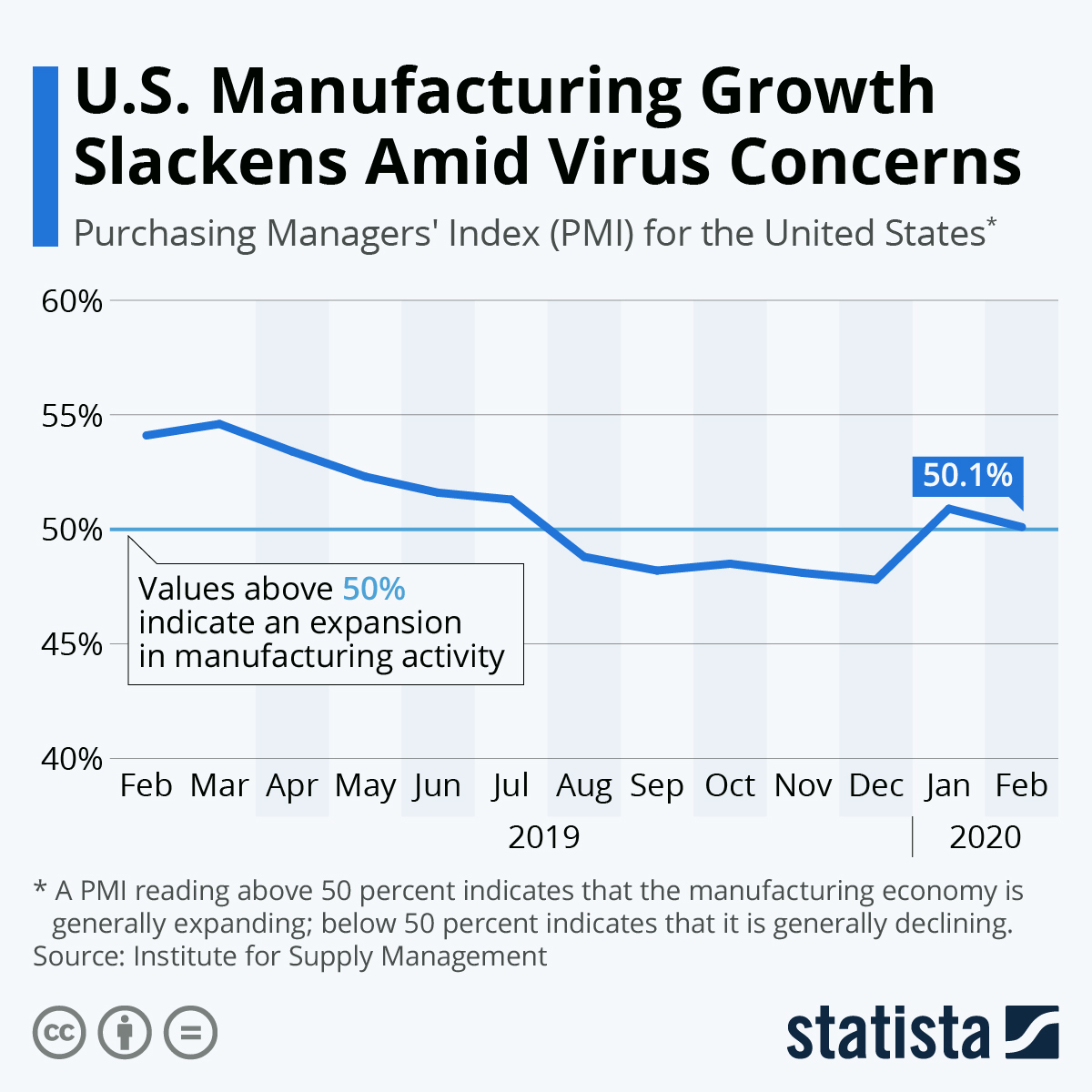The U.S. manufacturing sector lost some momentum in February as fears of the coronavirus' negative impact on the economy are mounting. That’s according to the latest reading of ISM’s Purchasing Managers’ Index (PMI), which dropped to 50.1 percent last month (with values above 50 percent indicating an expansion of manufacturing activity). With respect to the coronavirus, one executive from the Food, Beverage & Tobacco sector said that "we will see some softness in demand, but also [experience] havoc on items sourced from China that may cause significant delays to production." Another supply chain exec added that "access to information in China — from our supply base and customers — is slow to come by," making it even more difficult for companies to deal with the ongoing crisis.
Based on a monthly survey of supply chain executives across 18 manufacturing industries and published by the Institute for Supply Management on the first business day of each month, the PMI is a composite index based on five equally weighted subindices measuring new orders, production, employment, supplier deliveries and inventories. It is widely considered one of the most important economic indicators in the United States. Not only is the PMI indicative of manufacturing activity, but it can also read as an indicator for the overall economy. According to ISM, “a PMI above 42.8 percent, over a period of time, indicates that the overall economy, or gross domestic product (GDP), is generally expanding; below 42.8 percent, it is generally declining. The distance from 50 percent or 42.8 percent is indicative of the extent of the expansion or decline.”














